“Open roads” Towards Italian Cinema
“Open roads”, the event created by Antonio Monda and Richard Peña to give voice to the best Italian cinematographic productions is back in New York. During the last ten years, over 120 Italian films crossed the ocean to receive screenings at Lincoln Center, some of them obtaining an American distribution. Proud of this Pigmalion-like function the organizers have greased up the gears and shown themselves more and more careful about the young rookies.
Fresh minds and yet highly professionalized; directors such as Alessandro Angelini (in his first work Alza la testa he directs Castellitto, best actor in Rome 2009), Francesca Comencini (winner at Venice last year for Lo spazio bianco) and Pietro Marcello (best film in Turin and Berlin with La bocca del lupo). New authors, but also more experienced directors, able to film the Italian reality from a different angle, far from the heavy inheritance of Neorealism.
Many of the Italian film makers present at the festival met the public at Casa Italiana Zerilli-Marimò last Friday, June 4. The climate was highly informal, and was so green white and red to project us to the following week's World Cup. Carlo Verdone was talkative: he gave a heated description of a Roman newly-wed couple armed with a video camera near Central Park: the war cry “A Carlo!” almost caused him to trip over the curb of the sidewalk (all was filmed by the couple, and by the public!).
His film Io, loro e Lara, at Lincoln Center, promises many laughs, possibly with a bitter aftertaste, since it is about family disorder. Among the lively was also Rocco Papaleo, who is presenting the road movie Basilicata coast to coast: his mix of English and “Lucanian” competed with the simpathy of director Paolo Virzì (La prima cosa bella, David di Donatello for best screenplay, actor and actress). Compensating for the giggly side of the team were the more serious authors, from Gabriele Salvatores (Happy family) to Giuseppe Capotondi (La doppia ora), Susanna Nicchiarelli (Cosmonauta), Valerio Mieli (Dieci inverni), Alessandro Angelini (Alza la testa), Giorgio Diritti (L'uomo che verrà) and Alessandro Aronadio (Due vite per caso).
With the common innovative approach towards audiovisual narration, their stories experiment temporal
ellipses, estranged points of view, hybrid genres. They feel the strong need to free themselves from a pressing past. “The problem with Italian cinema is the communication method” - summarized Salvatores - “We have two parents who taught us their own language: mother and father, Italian comedy and Neorealism. They made us known to the world; today's challenge is to emulate them, using the cinematic language, but in a new way”. In fact the movies with which Italy identifies itself abroad are historical and take place in the South; we should create a new image, possibly transported by new authorial techniques.
And yet these young minds find difficulties in growing, in a country that's risking the closing of an Institution like the Centro Sperimentale di Cinematografia – the school that trained Michelangelo Antonioni, Steno, Luigi Zampa and the present Virzì and Mieli. “Those authors that are finally detaching themselves from the widespread semi-Neorealism” underlined Verdone, “react positively to the tremendous crisis that Italy is living today”. So not only do they wish to surpass their predecessors in ability but they are challenged in a time of great difficulty. Turning need to virtue, then, because “the great resource for Italian cinema is poverty” added Alessandro Aronadio. And Virzì's closing remark was partiotic: “At the moment we have great movies, in greater numbers than the United States”.
At the round table the knights seemed searching for their Arthur, their Graal, but also quite perplexed: what can actually be done in Italy? Will the craved tax credit system, with potential private backers and a cinematic industry less subdued by the hegemony of television, catch on?
Backers aren't scarce in New York, and there are many fans as well, judging by the sales. Everything has been sold out for days.
Translated by Julian Sachs






























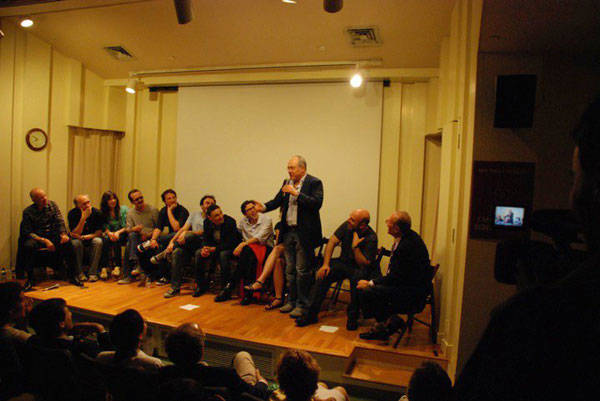
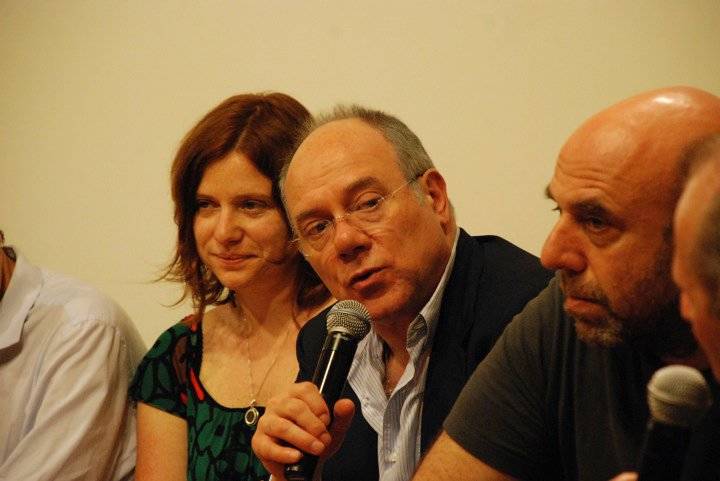

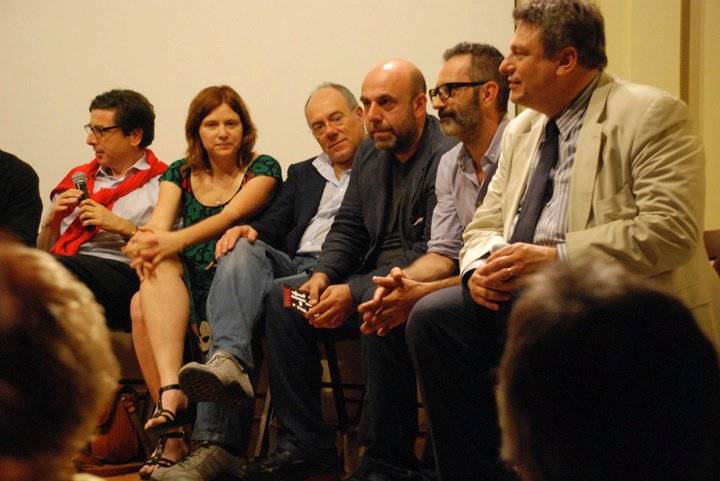
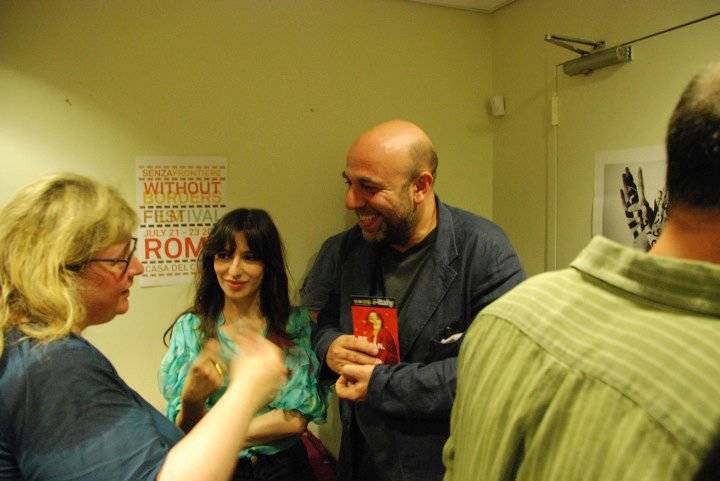
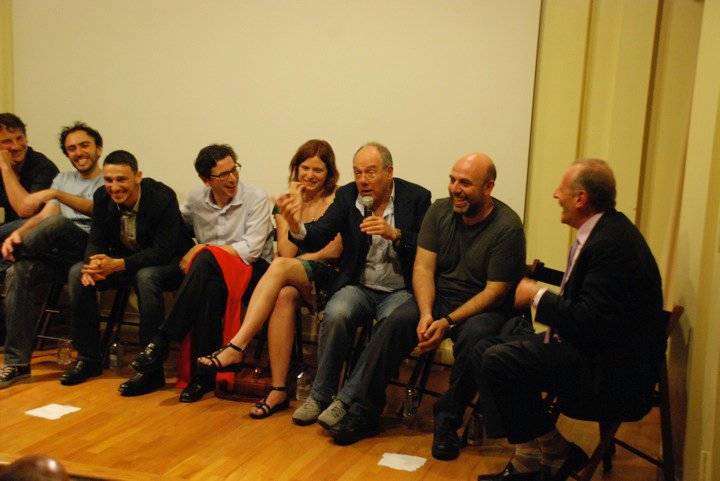







i-Italy
Facebook
Google+
This work may not be reproduced, in whole or in part, without prior written permission.
Questo lavoro non può essere riprodotto, in tutto o in parte, senza permesso scritto.